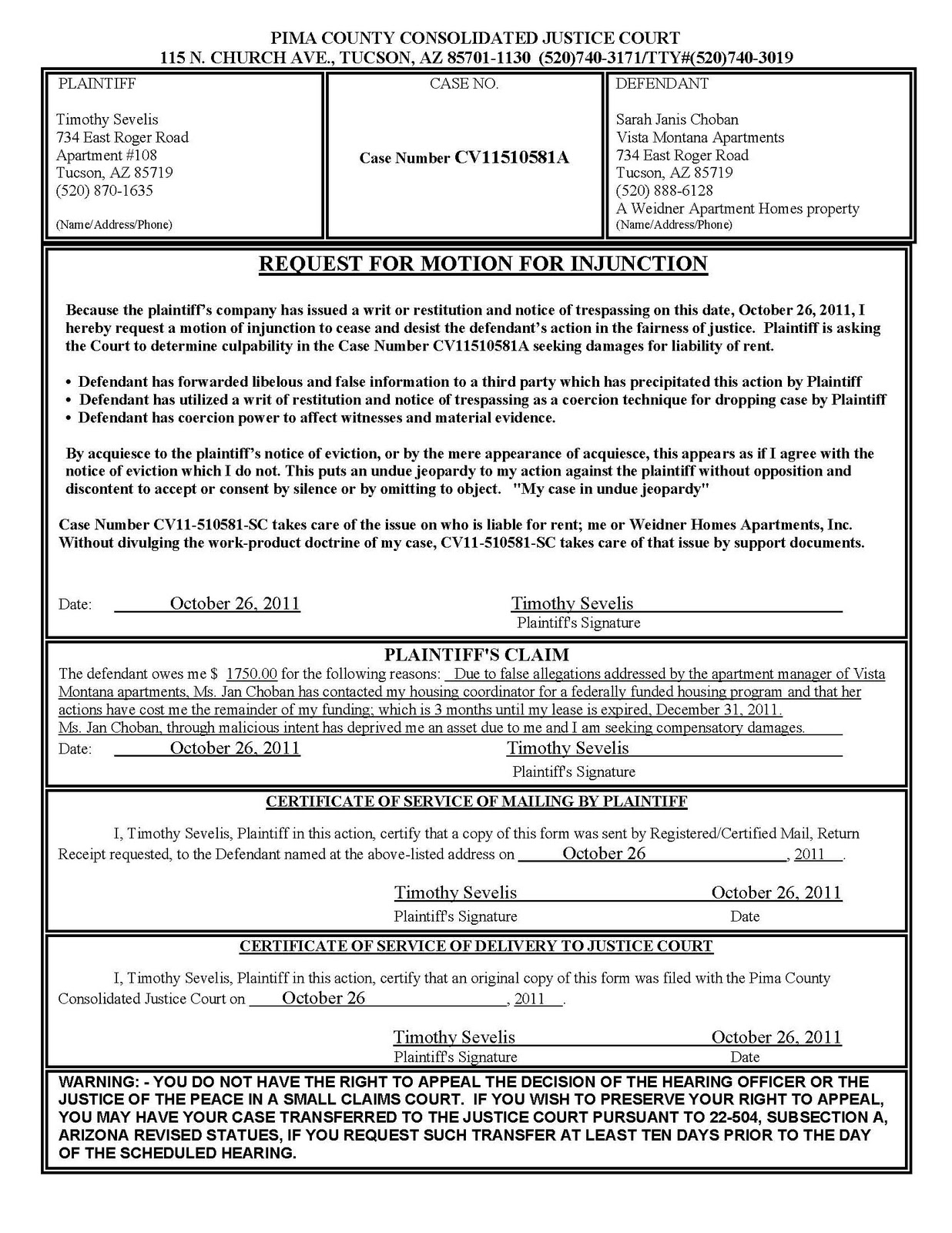What is an injunction?
An injunction is an order issued by a court that forces the defendant––a person, corporation or government entity––to do something or stop doing something, depending on what the plaintiff is requesting. In relatively rare cases, the court may issue a mandatory injunction, compelling a person, company, or governmental unit to take affirmative action in carrying out a specified action.
When a plaintiff decides to file a lawsuit, they must specify what type of legal remedy (or relief) they are asking the court to grant them. While many plaintiffs seek money to compensate them for their injury, some injuries require a different type of legal remedy. Instead of asking a court for monetary damages, a plaintiff could ask the court for an injunction (or injunctive relief) against the defendant. The extent of the injunction and the procedures for obtaining it are generally set out in your state’s rules of civil procedure. Any plaintiff seeking an injunction should first consult with an experienced attorney.
An injunction is an order issued by a court that forces the defendant––a person, corporation or government entity––to do something or stop doing something, depending on what the plaintiff is requesting. In relatively rare cases, the court may issue a mandatory injunction, compelling a person, company, or governmental unit to take affirmative action in carrying out a specified action.
When a plaintiff decides to file a lawsuit, they must specify what type of legal remedy (or relief) they are asking the court to grant them. While many plaintiffs seek money to compensate them for their injury, some injuries require a different type of legal remedy. Instead of asking a court for monetary damages, a plaintiff could ask the court for an injunction (or injunctive relief) against the defendant. The extent of the injunction and the procedures for obtaining it are generally set out in your state’s rules of civil procedure. Any plaintiff seeking an injunction should first consult with an experienced attorney.
When a plaintiff decides to file a lawsuit, they must specify what type of legal remedy (or relief) they are asking the court to grant them. While many plaintiffs seek money to compensate them for their injury, some injuries require a different type of legal remedy. Instead of asking a court for monetary damages, a plaintiff could ask the court for an injunction (or injunctive relief) against the defendant. The extent of the injunction and the procedures for obtaining it are generally set out in your state’s rules of civil procedure. Any plaintiff seeking an injunction should first consult with an experienced attorney.

No comments:
Post a Comment